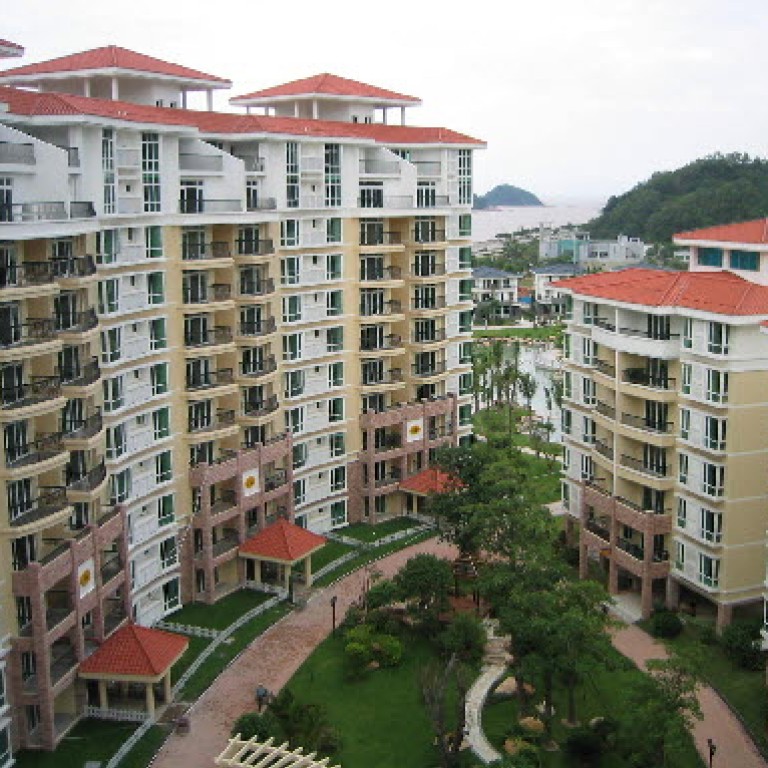
Could Hong Kong people move north in search of cheaper housing?
Bernard Chan says with better transport links and facilities such as schools, Hong Kong people priced out of the market here may one day opt to live across the border
I recently read an article in the business press about the trend in Hong Kong towards "mosquito-sized units". It described flats that, with an area of 180 sq ft, were smaller than a US car parking space. The cost: HK$4 million. This is happening in New York and London as well, but our situation is extreme.
The reason is simple. Property prices have risen to levels beyond most people's affordability. Even in areas such as Yuen Long or Tseung Kwan O, prices have gone above HK$10,000 a square foot. The government reduced the loan-to-value ratio for mortgages to 60 per cent in February, so buyers' down payments must be at least 40 per cent. The market wants smaller units because they are the only ones many people can afford.
This is not sustainable. A 200 sq ft studio might be suitable for a young single person - maybe even a couple - but there is no way families can live in such units.
Although some Hong Kong retirees move to the mainland, it is not currently practical for working people to commute here from across the border - unless they live in adjoining districts of Shenzhen
Something will probably give way at some point. We know that the low interest-rate environment has fed into prices, and at some stage the US Federal Reserve will start to tighten policy, and the situation will reverse. People have been saying this for years, but one day it might actually happen.
On top of that, the government is working on increasing land supply and building more housing. It's also possible that other events - such as a serious global or regional recession - will bring things back into balance.
Because our flat prices remain sky high, however, our housing situation could undergo some significant longer-term changes. This comes down to the extreme differential in housing prices between Hong Kong and nearby parts of the Pearl River Delta.
Although some Hong Kong retirees move to the mainland, it is not currently practical for working people to commute here from across the border - unless they live in adjoining districts of Shenzhen.
The key is transportation. The ferry ride from Zhuhai to Central is about one hour and 10 minutes, and from Nansha district, it is about one hour and 30 minutes. Many people would consider this too long. Even worse, there are just several sailings per day. On top of that, facilities such as schools in mainland towns can be limited.
However, I think attitudes will change.
I remember a time, maybe 30 years ago, when people thought Discovery Bay was an absurd place to live in because of the half-hour ferry ride and the perceived lack of amenities. Nowadays, it is hugely popular for families because of its space.
Two new bridges are being built across the Pearl River Delta, including the one linking Zhuhai with Hong Kong. The express rail link will connect Hong Kong with several points between Shenzhen and Guangzhou. Ferry services will probably increase. While cross-border commutes will not be short, they could be comparable to what workers put up with in, for example, Tokyo - perhaps 90 minutes each way.
That is not for everybody. But the clincher could be the difference in housing prices. The gap is staggering. A recent report states that flats in Zhuhai go for an average of 13,000 yuan (HK$16,200) a square metre. That is less than HK$2,000 a square foot. A 1,000 sq ft home - an unattainable dream for most young middle-class couples in Hong Kong - would cost HK$2 million. That isn't enough for a down payment on the smallest, cheapest unit here today.
Transport links could tilt the balance, and cross-border living would become a serious lifestyle option, especially for families. Schools and maybe clinics for Hong Kong people would soon follow. If you look at a satellite photo, you will see the Pearl River Delta could accommodate a lot of new Discovery Bays.
This could have repercussions for Hong Kong. How much of the commuters' household spending on groceries and other things would be diverted from Hong Kong to the mainland? Would more mainlanders move in the other direction and buy goods or homes here? And what would the effect be on local property prices? Who would want to buy a HK$4 million, 180 sq ft "mosquito unit"?

